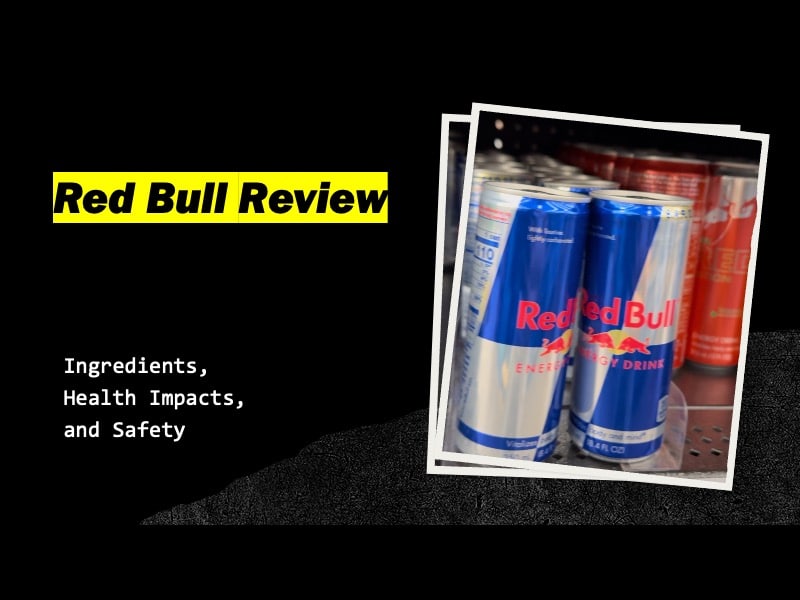Red Bull Review: Ingredients, Health Impacts, and Safety
Red Bull is one of the most recognizable energy drinks in the world.
Since its launch in the 1980s, Red Bull has become the most popular energy drink worldwide, with over 12.7 billion cans sold in 2024 alone (Statista).
Marketed as a quick boost for energy and focus, it has become a go-to beverage for athletes, students, night-shift workers, and anyone needing a pick-me-up.
But popularity doesn’t always equal health. The global rise of energy drink consumption has sparked concern among nutrition experts and physicians.
A systematic review published in Frontiers in Public Health found that more than 30% of adolescents and young adults regularly consume energy drinks, often in amounts that exceed safe caffeine guidelines (Alsunni, 2015).
This raises an important question: is Red Bull safe to drink, and what role does it play in overall health?
As a professional athlete with a background in nutrition education, I’ve studied Red Bull’s ingredients and their potential benefits and drawbacks.
To understand whether Red Bull is “good” or “bad” for you, it’s essential to look at its nutritional profile, key ingredients like caffeine and taurine, and how it compares to the healthiest energy drinks on the market.
So, let’s take a closer look at what makes Red Bull so popular and whether it’s safe for everyday consumption.
What Is Red Bull?

Red Bull is an energy drink first introduced in Austria in 1987 and later launched worldwide.
It’s best known for its slogan, “Red Bull gives you wings,” which ties its branding to mental alertness, stamina, and performance.
The drink typically comes in 8.4-ounce (250 ml) cans, though larger sizes are widely available.
It’s sold in over 170 countries and dominates the energy drink market.
Red Bull Nutrition Facts
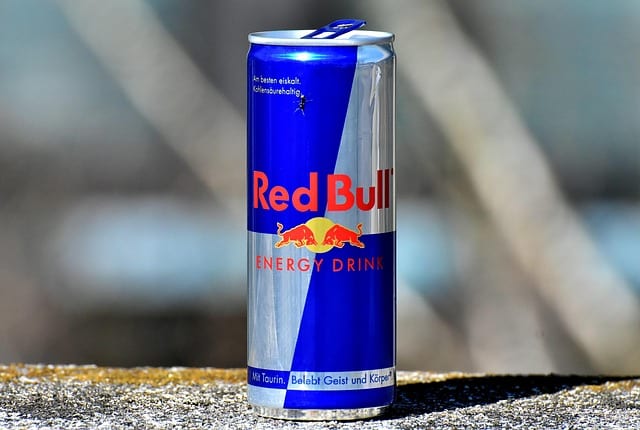
The exact nutritional profile varies by size and variety (original, sugar-free, or flavored editions), but here’s what you’ll find in a standard 8.4-oz (250 ml) can of original Red Bull:
- Calories: ~110
- Sugar: 27 g
- Caffeine: 80 mg
- Taurine: 1,000 mg
- B-Vitamins: B3 (niacin), B6, B12, B5 (pantothenic acid)
- Other ingredients: carbonated water, glucose, citric acid, natural/artificial flavors
Sugar-free and zero-calorie versions replace sugar with artificial sweeteners like aspartame and acesulfame K.
How Much Caffeine Is in Red Bull?
A standard can of Red Bull has about 80 mg of caffeine, which is similar to a small cup of coffee.
Larger 12-oz and 16-oz cans contain proportionally more.
For most healthy adults, up to 400 mg of caffeine per day is considered safe (FDA, 2018).
That means one or two Red Bulls is unlikely to be harmful for the average person, but multiple cans combined with coffee or other energy drinks could push intake into risky territory.
Related Reading: Natural vs Synthetic Caffeine – Which is Healthier & Better for You?
Is Red Bull Healthy or Bad for You?
Red Bull can provide a short-term boost in alertness and performance thanks to caffeine and sugar.
But its health impact depends on how often and how much you drink:
- Potential Benefits
- Increases alertness and focus
- Boosts exercise performance and reaction time
- Provides B-vitamins that support energy metabolism
- Potential Risks
- High sugar content may contribute to weight gain, blood sugar spikes, and dental problems
- Excess caffeine can trigger anxiety, jitters, headaches, or insomnia
- Mixing with alcohol increases risk of dehydration and impaired judgment
For most healthy adults, an occasional Red Bull is not harmful. Daily or excessive consumption, however, could have negative long-term effects.
Why is Red Bull Bad for You?

Red Bull isn’t inherently “toxic,” but it can be considered unhealthy when consumed in excess.
The main concerns come from its sugar content, caffeine levels, and patterns of use.
A standard 8.4-oz can contains about 27 grams of sugar, which is nearly equal to the total daily limit recommended for women and over half the limit for men, according to the American Heart Association.
Regularly consuming that much added sugar may contribute to weight gain, insulin resistance, and increased risk of type 2 diabetes.
The 80 mg of caffeine per can is moderate compared to coffee, but problems arise when multiple cans are consumed or when it’s combined with coffee, pre-workouts, or other stimulants.
Too much caffeine can cause jitteriness, elevated heart rate, digestive discomfort, anxiety, and disrupted sleep.
Another concern is mixing Red Bull with alcohol, a common trend at parties and clubs.
Research shows this combination may mask feelings of intoxication, leading to riskier behaviors, dehydration, and impaired judgment (Marczinski & Fillmore, 2014).
Finally, frequent consumption of energy drinks in young people is associated with higher rates of poor sleep, headaches, and elevated blood pressure (Visram et al., 2016).
What Does Taurine in Red Bull Do?
Taurine is an amino acid naturally found in the body, especially in muscles, the brain, and the heart.
It supports cell hydration, antioxidant defense, and nervous system regulation.
Despite myths about “bull sperm,” taurine in Red Bull is synthetically produced and vegan-friendly.
Current research suggests that taurine supplementation may help reduce fatigue and improve exercise recovery, especially when combined with caffeine.
However, the evidence of its effectiveness in energy drinks is mixed.
Can Pregnant or Breastfeeding Women Drink Red Bull?
Due to its caffeine content and stimulants, Red Bull is not recommended during pregnancy or breastfeeding.
The American College of Obstetricians and Gynecologists recommends limiting caffeine intake to less than 200 mg daily during pregnancy.
One Red Bull may already make up half of that allowance, and sugar adds additional concerns.
How Long Does Red Bull Last in Your System?
The effects of Red Bull usually kick in within 10–20 minutes and can last 2–4 hours, depending on individual caffeine sensitivity.
Since caffeine’s half-life is about 5 hours, it may take 8–12 hours for your body to fully clear it.
Therefore, drinking Red Bull late in the day may interfere with sleep.
Is Sugar-Free Red Bull a Better Choice?
Sugar-free Red Bull eliminates calories and sugar, making it a better option for people watching their weight or blood sugar.
However, it still contains caffeine and artificial sweeteners, which may not be suitable for everyone.
Will Red Bull Make You Fail a Drug Test?
Drinking Red Bull will not make you fail a standard drug test.
The ingredients in Red Bull, such as caffeine, sugar, taurine, and B vitamins, are all legal and do not appear on workplace or athletic drug screenings as banned substances.
The confusion often comes from taurine, since some people mistakenly believe it is derived from bull sperm.
In reality, taurine in Red Bull is synthetically produced, vegan-friendly, and completely legal.
That being said, excessive caffeine consumption can sometimes raise red flags in sports settings.
For example, the World Anti-Doping Agency (WADA) previously monitored caffeine as a controlled substance when consumed in very high amounts, although it is no longer banned.
For the average person, a Red Bull or two will not trigger any issues on a drug test.
Best Alternatives to Red Bull
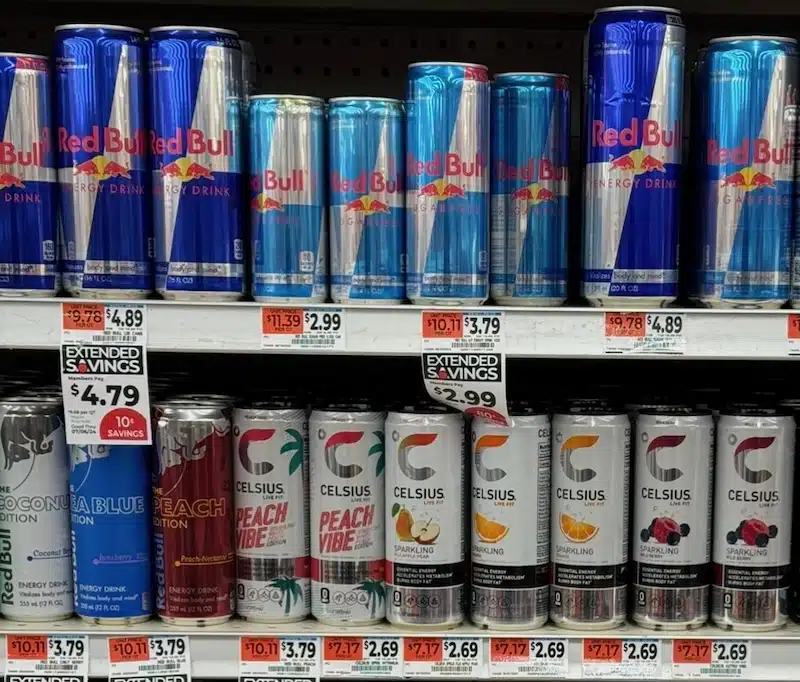
While Red Bull is the most iconic energy drink worldwide, it’s not the only option.
Many people are looking for energy drinks with fewer sugars, more natural ingredients, or added functional benefits.
Here are three of the best alternatives to Red Bull that may be worth trying.
Celsius
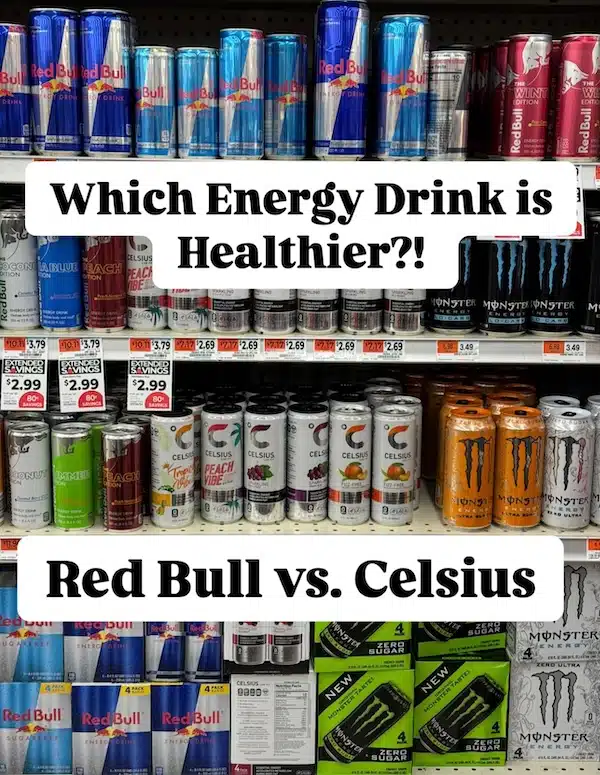
One of the most common energy drink comparisons is Red Bull vs Celsius.
Celsius Energy Drinks have grown rapidly in popularity because they market themselves as a “fitness energy drink.”
A standard can of Celsius contains about 200 mg of caffeine, which is much higher than Red Bull, along with green tea extract, guarana, ginger, and B vitamins.
It’s sugar-free and designed to support metabolism and exercise performance.
For athletes or workout enthusiasts, Celsius may provide a stronger pre-workout effect.
However, the higher caffeine content could be overwhelming for those sensitive to stimulants.
Last update on 2025-11-20 / This article includes affiliate links/Images via Amazon Product Advertising API. I may earn commissions on purchases made through these links.
Alani Nu Energy Drinks
Alani Nu Energy Drinks are another trending energy drink alternative.
They offer 200 mg of caffeine, are sugar-free, and include added l-theanine, l-carnitine and ginseng, amongst other energy-supporting ingredients.
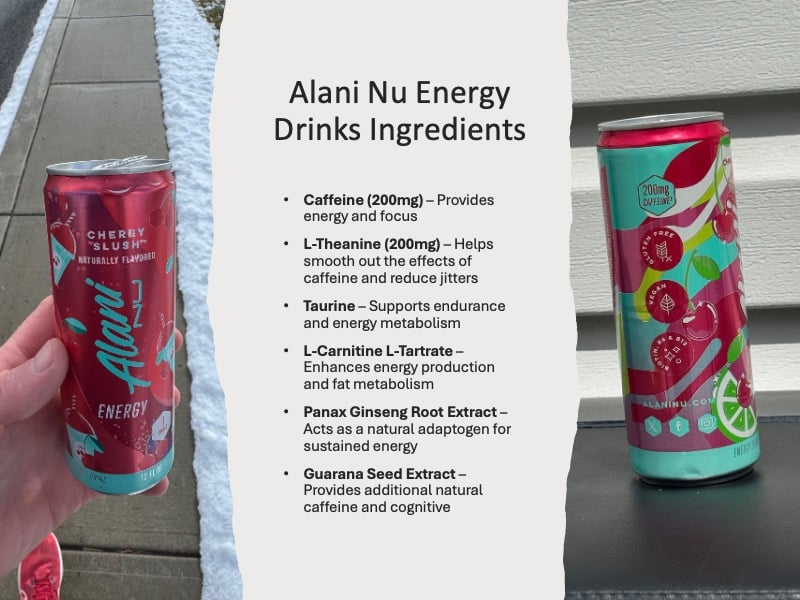
Many people prefer Alani Nu for its fun flavors and clean profile, which avoids the heavy aftertaste of some traditional energy drinks.
It’s often seen as a more “wellness-focused” brand compared to Red Bull.
Last update on 2025-11-20 / This article includes affiliate links/Images via Amazon Product Advertising API. I may earn commissions on purchases made through these links.
Bloom Energy Drinks
Bloom Nutrition, known for its superfood powder, has recently expanded its offerings to include energy drinks.
Bloom Energy Drinks are lighter in caffeine than Alani Nu and Celsius (180 mg per can) and are designed with natural flavors, zero sugar, and added ingredients like apple cider vinegar, prebiotics, green tea extract, and l-theanine to support steady energy, digestion, and overall health.
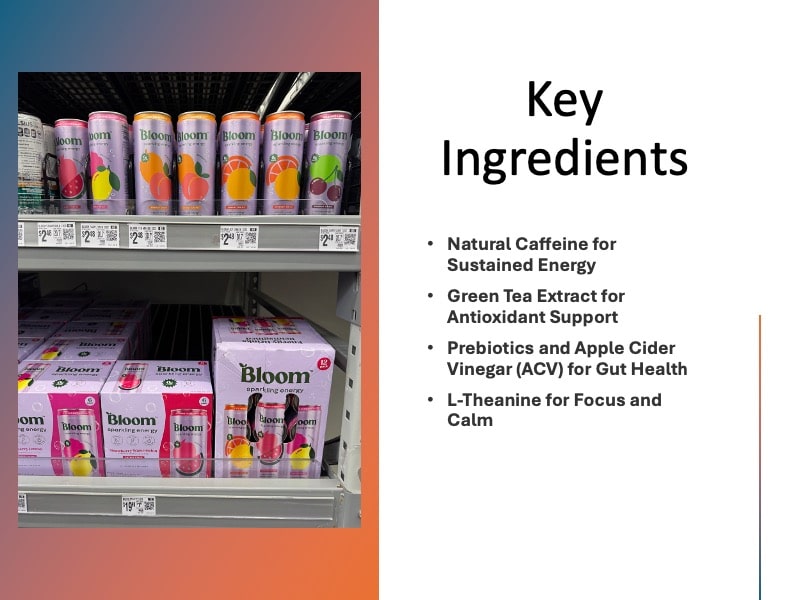
Last update on 2025-11-20 / This article includes affiliate links/Images via Amazon Product Advertising API. I may earn commissions on purchases made through these links.
Final Thoughts: Should You Drink Red Bull?
Red Bull can be an effective way to boost energy and mental focus, but it shouldn’t be your go-to hydration or recovery drink.
For athletes and active individuals, water, electrolytes, and balanced meals provide more sustainable energy.
An occasional Red Bull is generally safe for healthy adults, but overuse can lead to caffeine dependence, poor sleep, and sugar-related health issues.
If you enjoy it, moderation is key.
Think of it as an occasional performance “booster,” not a daily staple.
Key Takeaway: Red Bull isn’t inherently “bad,” but it’s not a health food either. Understanding its nutrition, caffeine content, and effects helps you make an informed choice about when, and if, it belongs in your routine.
Frequently Asked Questions About Red Bull
This website does not provide medical advice. This website site does contain affiliate links, and purchases may earn a commission.
Read my Medical Disclaimer, Review Disclaimer, and Publishing Policies for more details. Use of this site indicates acceptance of these terms.

